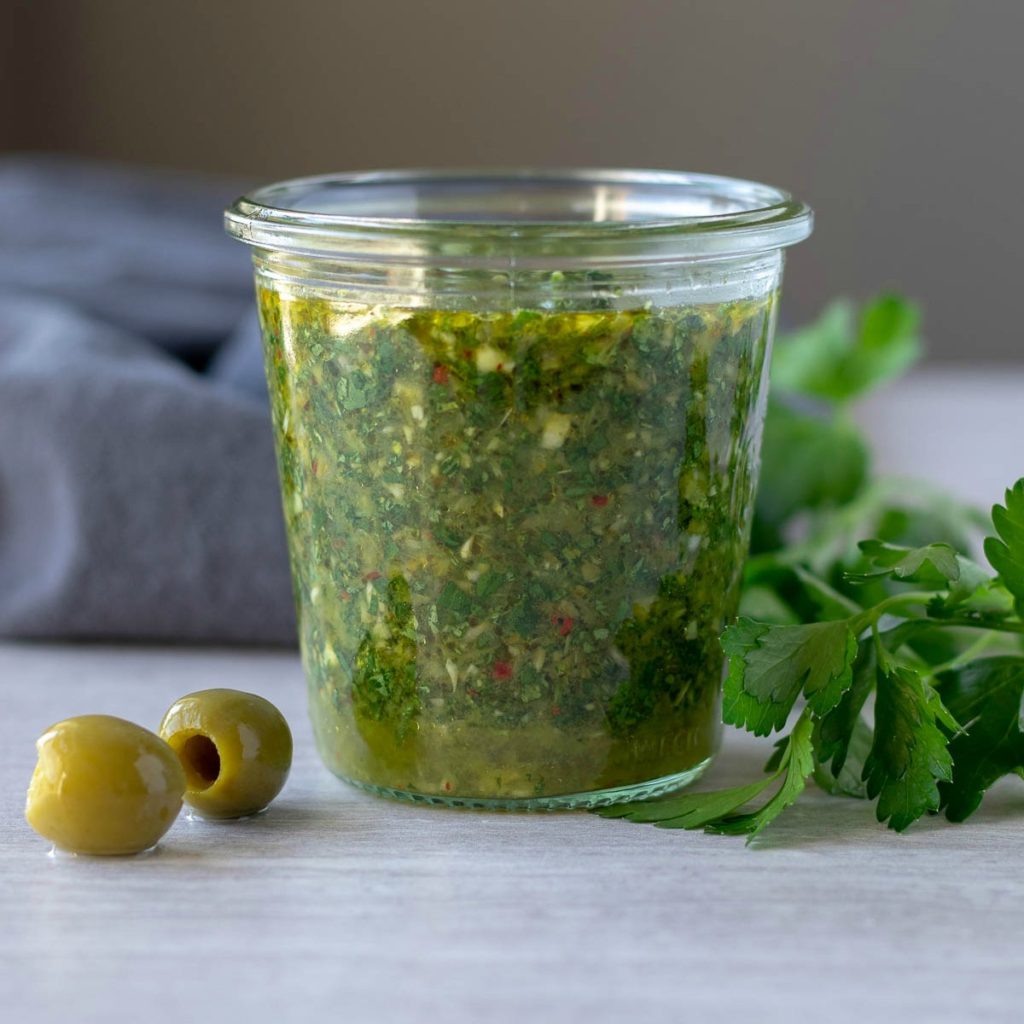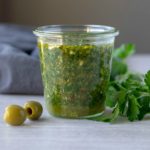
Dirty Chimichurri Sauce
Chimichurri sauce is best-know as an accompaniment to steak, but it’s also delicious with chicken, fish, and grilled or roasted vegetables—particularly this rendition. I call my chimichurri “dirty” due to its unique inclusion of olives (or capers) and their juice, but the finished product is actually quite light and fresh in flavor. You can use just about any leafy herb in this sauce. My preference is a 2:1 ratio of cilantro to parsley, but the inverse or a modest substitution of basil, mint, chervil, or oregano are equally nice.

- 6-8 pitted green Spanish olives like Castelvetrano or 1 tbsp. capers (reserve brine)
- 1 small shallot, coarsely chopped (approx. 2 tbsp.)
- 2 medium garlic cloves, coarsely chopped
- 1 c. fresh cilantro leaves and tender stems (firmly packed)
- 1/2 c. fresh Italian parsley leaves and tender stems (firmly packed)
- 1/4 tsp. kosher salt
- 1/4 tsp. dried Aleppo pepper flakes (or 1/8 tsp. traditional red pepper flakes, see TIP A below)
- juice of 1 orange
- zest and juice of 1 lime
- 2 tbsp. olive or caper brine (from olive jar or container)
- 2 tbsp. extra virgin olive oil
-
Put the olives (or capers), shallot, garlic, cilantro, and parsley in the bowl of a food processor and pulse until very finely chopped, scraping down the sides of the bowl as needed. Use short, quick pulses so as not to pulverize the ingredients (you're looking for very small bits vs. a paste). Transfer to a small bowl or mason jar when done.
-
Add the remaining ingredients (kosher salt through olive oil) and stir until combined. Let sit covered in the fridge for up to 3 days or serve immediately at room temperature. The flavors will intensify with time so make-ahead at least a couple of hours if possible.
TIP A: Aleppo pepper is the dried and ground (flaked) form of the Halaby pepper. The flakes are traditionally used as a condiment or in cooking in a variety of Middle Eastern cuisines. Aleppo pepper flakes are much milder than traditional red pepper flakes which (I think) makes them more flavorful and approachable. For this reason, I tend to use them across all styles of cooking. If you can't find Aleppo pepper flakes, then traditional red pepper flakes are a great substitute—just be sure to cut the amount by at least half.
